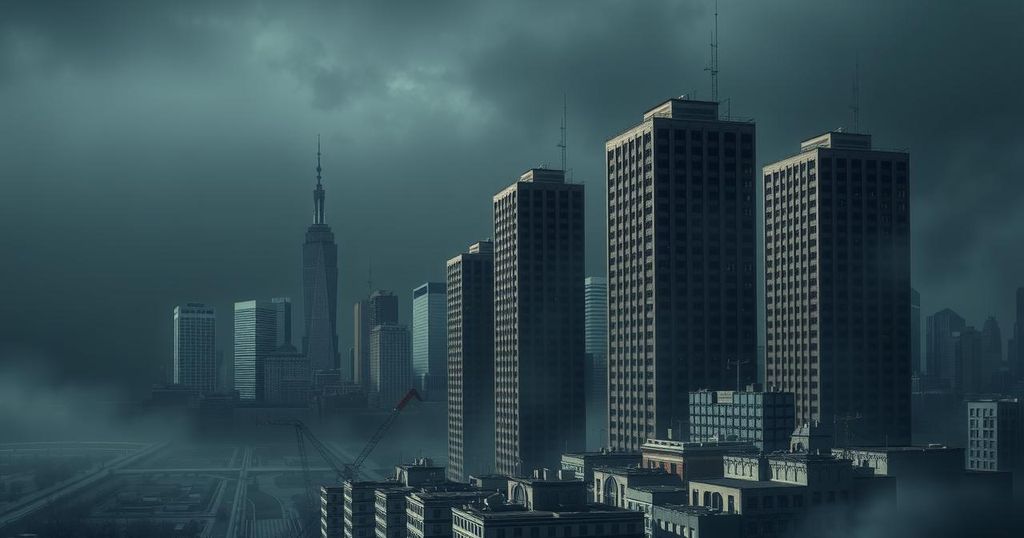The budget crisis in South Africa has exposed significant policy rifts within the Government of National Unity. The ANC proposes a VAT hike to fund social programs, while the DA favors cuts to public expenditure. Trade unions and civil organizations are vocally opposing these measures, highlighting the struggles faced by working-class citizens amid rising living costs and economic instability.
The ongoing budget crisis in South Africa has led to significant disagreements between the African National Congress (ANC) and the Democratic Alliance (DA), the two largest parties in the Government of National Unity (GNU). The ANC proposes increasing the Value Added Tax (VAT) from 15% to 17%, while the DA advocates for steep cuts in public spending. This discord highlights the failure of the newly formed GNU to meet the needs of its constituents, particularly the working-class citizens struggling with rising living costs.
Amidst an economic crisis, the ANC’s proposed VAT hike would add further financial strain on already burdened South Africans, forcing many to rely on debt for basic needs. Trade union leaders such as Irvin Jim from the National Union of Metalworkers of South Africa (NUMSA) have protested the tax increase, stressing that workers are already spending nearly 60% of their incomes on essentials while facing looming tariff hikes on utilities.
Additionally, the Congress of South African Trade Unions (COSATU) opposes the VAT increase, claiming it prioritizes fiscal equilibrium over essential social supports. COSATU’s statement emphasizes that such actions send a troubling message during a critical election period, urging the ANC to reconsider its position. Similarly, the South African Communist Party (SACP) has condemned the VAT hike, arguing it exacerbates hunger and fails to address deep-rooted economic issues through collaborative dialogue prior to budget formulation.
Contrary to its left-aligned allies, the ANC appears to lean on support from the right-wing DA, which has historically criticized ANC policies. In a remarkable shift, the ANC’s failure to secure a parliamentary majority necessitated cooperation with the DA to form the GNU. As tensions regarding the budget rise, public demonstrations have emerged in Cape Town against proposed cuts and tax increases, showcasing community dissent against austerity measures.
The government’s plans for increased taxation on the working class contrasts sharply with calls for higher taxes on wealth and corporations as more equitable methods to address budgetary shortfalls. The South African Federation of Trade Unions (SAFTU) advocates for alternatives such as wealth taxation, which could yield substantial revenue without burdening low-income earners. Reports suggest the Treasury’s expectations for revenue growth following VAT increases may be overly optimistic, based on previous shortfalls when VAT was last raised.
Moreover, COSATU highlights that enhancing tax compliance through reforms at the South African Revenue Services (SARS) could generate comparable revenue without harming the poor. As widespread protests mobilize various organizations to unite against austerity, critics argue that the government’s focus on debt rather than addressing core issues like unemployment and hunger reflects significant mismanagement.
In an unprecedented turn of events, the budget presentation was postponed due to disagreements within the governing coalition, signaling a potential governance crisis. Legislators and opposition leaders have voiced their concerns, stating that the inability to present a cohesive budget undermines government efficacy. Some critics declare this as indicative of a leadership collapse, while others call for immediate accountability and resolution.
Despite the DA’s temporary refusal to support the VAT increase, NUMSA warns against conflating the DA’s actions with genuine concern for the working class. The DA’s proposed solutions involve substantial cuts to social programs, raising concerns among labor groups about their potential impact on marginalized communities. Amid an urgent economic landscape, labor leaders advocate for a united front against detrimental policies that prioritize fiscal austerity over social welfare.
In conclusion, the budgetary impasse in South Africa’s GNU underscores deep ideological rifts between its leading parties concerning economic policy. The proposed VAT increase by the ANC may exacerbate existing hardships for the working class, while the DA’s calls for austerity threaten vital social services. Amid rising unrest, labor organizations and civil groups continue to demand a shift towards equitable taxation and robust public spending to address the country’s pressing economic challenges.
Original Source: indepthnews.net




